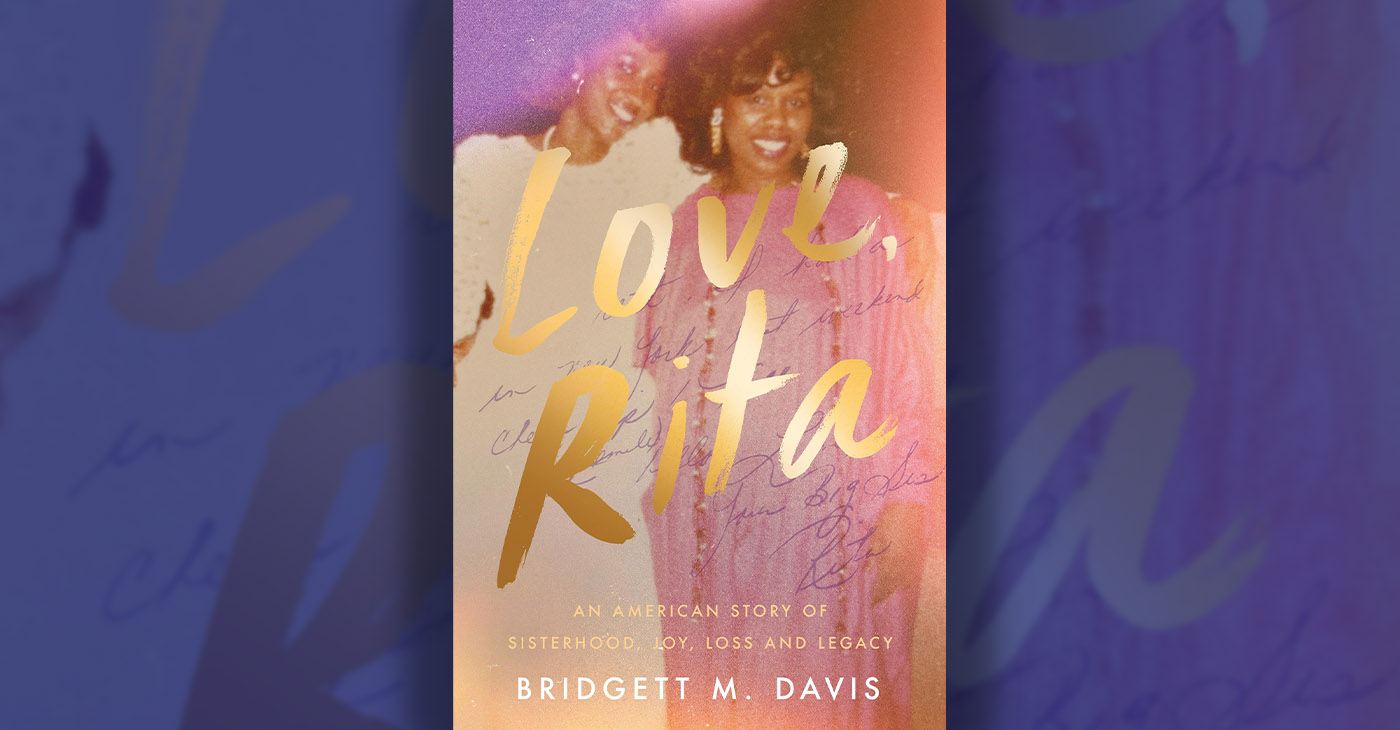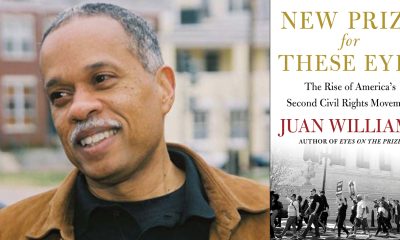Arts and Culture
BOOK REVIEW: “What Color is Your Hoodie? Essays on Black Gay Identity”
Some days, it seems as though you have superpowers.
That must be the explanation for being unseen. That’s why there are days when nobody looks at you.
<p>
There’s no acknowledgment that you exist. You’re suddenly Invisible Man, and in the new book “What Color is Your Hoodie? Essays on Black Gay Identity” by Jarrett Neal, the reason is not so transparent.
Born to a 14-year-old mother, raised in a household with an alcoholic grandfather, Jarrett Neal was in eighth grade when his gym class accidentally walked in on their coach, showering.
It was Neal’s first glimpse of a naked man and it “ended my boyhood,” he says.
He was well into college when he finally admitted to himself that he was attracted to men; still, the “daily taunts” from his more athletic, more self-confident peers and the absence of a father haunted him for many years.
To counteract it, Neal joined a gym and worked out tirelessly, until he realized that he’d never have a body like He-Man. He was never going to make a living with his physique.
Instead, Neal knew that he had to write.
It was “write or die,” he says, though he’s been told that his style is “either too Black of too gay” and he once assumed that “as a boy I wasn’t supposed to care about books…”
Even so, he devoured the works of gay men – particularly those who were Black. That voracity for books led to a teaching career.
In his essays here, Neal discusses the dearth of gay Black men in films and television, and he decries the lack of interest by white readers in the works of Black authors. He looks at the sexuality of gay Black men who, like most African American men, live under “sexual stereotypes” that cause “a tremendous onus… to live up to…”
He writes about Black men (some gay) who have made history and changed perceptions within their neighborhoods or industries. And as a Black man married to a white man, he notes that racism within the gay community is as big a problem as it is anywhere else.
Author Jarrett Neal is not shy.
There’s no waffling inside this book, and nothing held back. Neal discusses gay porn as blithely as he does modern literature; he remembers his childhood with the same passion as he does coming out.
Such power and force in writing serves to give readers – straight or gay – a solid understanding of the points he tries to make. We might laugh or raise our eyebrows but we also empathize or, as the case may be, sympathize.
What mars this otherwise well-done collection of essays is its sloppiness. “What Color is Your Hoodie?” is riddled with misspellings and punctuation mistakes, which, because of the frequency, almost made me want to quit this book too many times.
If you can forgive that distraction, then this unusual book is a good read that may actually change minds. Truthful, blunt, and thought provoking, regretful mistakes aside, “What Color is Your Hoodie?” should be seen.
“What Color is Your Hoodie? Essays on Black Gay Identity” by Jarrett Neal, c. 2015, Chelsea Station Editions, $18; 175 pages.
Activism
New Oakland Moving Forward
This week, several socially enterprising members of this group visited Oakland to explore ways to collaborate with local stakeholders at Youth Empowerment Partnership, the Port of Oakland, Private Industry Council, Oakland, Mayor-elect Barbara Lee, the Oakland Ballers ownership group, and the oversight thought leaders in the Alameda County Probation Department.

By Post Staff
Since the African American Sports and Entertainment Group purchased the City of Oakland’s share of the Alameda County Coliseum Complex, we have been documenting the positive outcomes that are starting to occur here in Oakland.
Some of the articles in the past have touched on actor Blair Underwood’s mission to breathe new energy into the social fabric of Oakland. He has joined the past efforts of Steph and Ayesha Curry, Mistah Fab, Green Day, Too Short, and the Oakland Ballers.
This week, several socially enterprising members of this group visited Oakland to explore ways to collaborate with local stakeholders at Youth Empowerment Partnership, the Port of Oakland, Private Industry Council, Oakland, Mayor-Elect Barbara Lee, the Oakland Ballers ownership group, and the oversight thought leaders in the Alameda County Probation Department.
These visits represent a healthy exchange of ideas and plans to resuscitate Oakland’s image. All parties felt that the potential to impact Oakland is right in front of us. Most recently, on the back side of these visits, the Oakland Ballers and Blair Underwood committed to a 10-year lease agreement to support community programs and a community build-out.
So, upward and onward with the movement of New Oakland.
Arts and Culture
BOOK REVIEW: Love, Rita: An American Story of Sisterhood, Joy, Loss, and Legacy
When Bridgett M. Davis was in college, her sister Rita was diagnosed with lupus, a disease of the immune system that often left her constantly tired and sore. Davis was a bit unfazed, but sympathetic to Rita’s suffering and also annoyed that the disease sometimes came between them. By that time, they needed one another more than ever.

By Terri Schlichenmeyer
Author: Bridgett M. Davis, c.2025, Harper, $29.99, 367 Pages
Take care.
Do it because you want to stay well, upright, and away from illness. Eat right, swallow your vitamins and hydrate, keep good habits and hygiene, and cross your fingers. Take care as much as you can because, as in the new book, “Love, Rita” by Bridgett M. Davis, your well-being is sometimes out of your hands.
It was a family story told often: when Davis was born, her sister, Rita, then four years old, stormed up to her crying newborn sibling and said, ‘Shut your … mouth!’
Rita, says Davis, didn’t want a little sister then. She already had two big sisters and a neighbor who was somewhat of a “sister,” and this baby was an irritation. As Davis grew, the feeling was mutual, although she always knew that Rita loved her.
Over the years, the sisters tried many times not to fight — on their own and at the urging of their mother — and though division was ever present, it eased when Rita went to college. Davis was still in high school then, and she admired her big sister.
She eagerly devoured frequent letters sent to her in the mail, signed, “Love, Rita.”
When Davis was in college herself, Rita was diagnosed with lupus, a disease of the immune system that often left her constantly tired and sore. Davis was a bit unfazed, but sympathetic to Rita’s suffering and also annoyed that the disease sometimes came between them. By that time, they needed one another more than ever.
First, they lost their father. Drugs then invaded the family and addiction stole two siblings. A sister and a young nephew were murdered in a domestic violence incident. Their mother was devastated; Rita’s lupus was an “added weight of her sorrow.”
After their mother died of colon cancer, Rita’s lupus took a turn for the worse.
“Did she even stand a chance?” Davis wrote in her journal.
“It just didn’t seem possible that she, someone so full of life, could die.”
Let’s start here: once you get past the prologue in “Love, Rita,” you may lose interest. Maybe.
Most of the stories that author Bridgett M. Davis shares are mildly interesting, nothing rare, mostly commonplace tales of growing up in the 1960s and ’70s with a sibling. There are a lot of these kinds of stories, and they tend to generally melt together. After about fifty pages of them, you might start to think about putting the book aside.
But don’t. Not quite yet.
In between those everyday tales, Davis occasionally writes about being an ailing Black woman in America, the incorrect assumptions made by doctors, the history of medical treatment for Black people (women in particular), attitudes, and mythologies. Those passages are now and then, interspersed, but worth scanning for.
This book is perhaps best for anyone with the patience for a slow-paced memoir, or anyone who loves a Black woman who’s ill or might be ill someday. If that’s you and you can read between the lines, then “Love, Rita” is a book to take in carefully.
Activism
Faces Around the Bay: Author Karen Lewis Took the ‘Detour to Straight Street’
“My life has been a roller-coaster with an unlimited ride wristband! I was raised in Berkeley during the time of Ron Dellums, the Black Panthers, and People’s Park. I was a Hippie kid, my Auntie cut off all our hair so we could wear the natural styles like her and Angela Davis.

By Barbara Fluhrer
I met Karen Lewis on a park bench in Berkeley. She wrote her story on the spot.
“My life has been a roller-coaster with an unlimited ride wristband! I was raised in Berkeley during the time of Ron Dellums, the Black Panthers, and People’s Park. I was a Hippie kid, my Auntie cut off all our hair so we could wear the natural styles like her and Angela Davis.
I got married young, then ended up getting divorced, raising two boys into men. After my divorce, I had a stroke that left me blind and paralyzed. I was homeless, lost in a fog with blurred vision.
Jesus healed me! I now have two beautiful grandkids. At 61, this age and this stage, I am finally free indeed. Our Lord Jesus Christ saved my soul. I now know how to be still. I lay at his feet. I surrender and just rest. My life and every step on my path have already been ordered. So, I have learned in this life…it’s nice to be nice. No stressing, just blessings. Pray for the best and deal with the rest.
Nobody is perfect, so forgive quickly and love easily!”
Lewis’ book “Detour to Straight Street” is available on Amazon.
-

 Activism4 weeks ago
Activism4 weeks agoAI Is Reshaping Black Healthcare: Promise, Peril, and the Push for Improved Results in California
-

 Activism4 weeks ago
Activism4 weeks agoBarbara Lee Accepts Victory With “Responsibility, Humility and Love”
-

 Activism4 weeks ago
Activism4 weeks agoESSAY: Technology and Medicine, a Primary Care Point of View
-

 Activism4 weeks ago
Activism4 weeks agoFaces Around the Bay: Author Karen Lewis Took the ‘Detour to Straight Street’
-

 Arts and Culture4 weeks ago
Arts and Culture4 weeks agoBOOK REVIEW: Love, Rita: An American Story of Sisterhood, Joy, Loss, and Legacy
-

 Activism4 weeks ago
Activism4 weeks agoNewsom Fights Back as AmeriCorps Shutdown Threatens Vital Services in Black Communities
-

 #NNPA BlackPress4 weeks ago
#NNPA BlackPress4 weeks agoThe RESISTANCE – FREEDOM NOW
-

 Activism4 weeks ago
Activism4 weeks agoTeachers’ Union Thanks Supt. Johnson-Trammell for Service to Schools and Community


















































